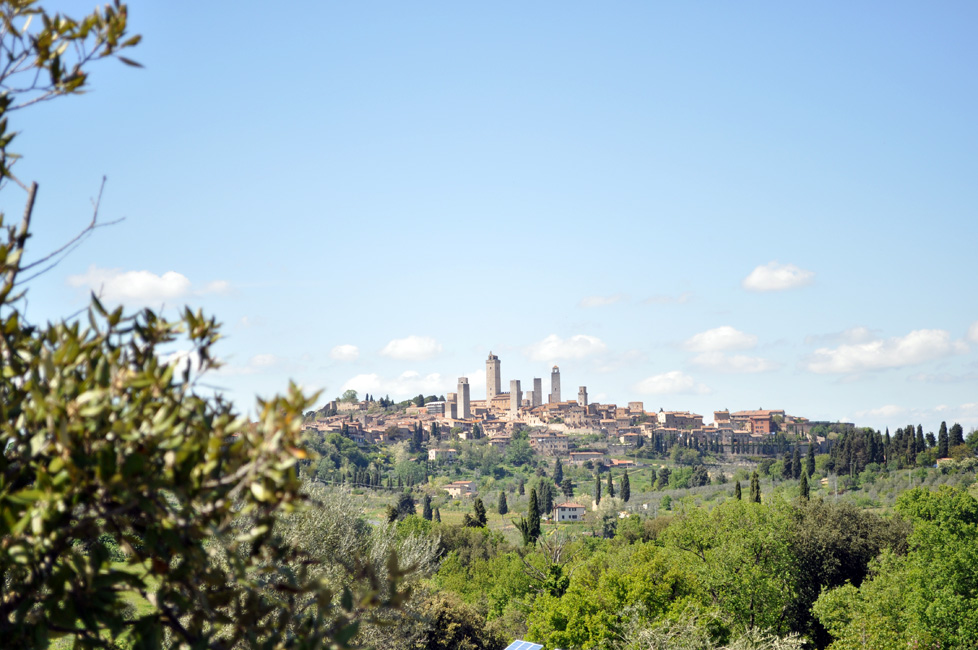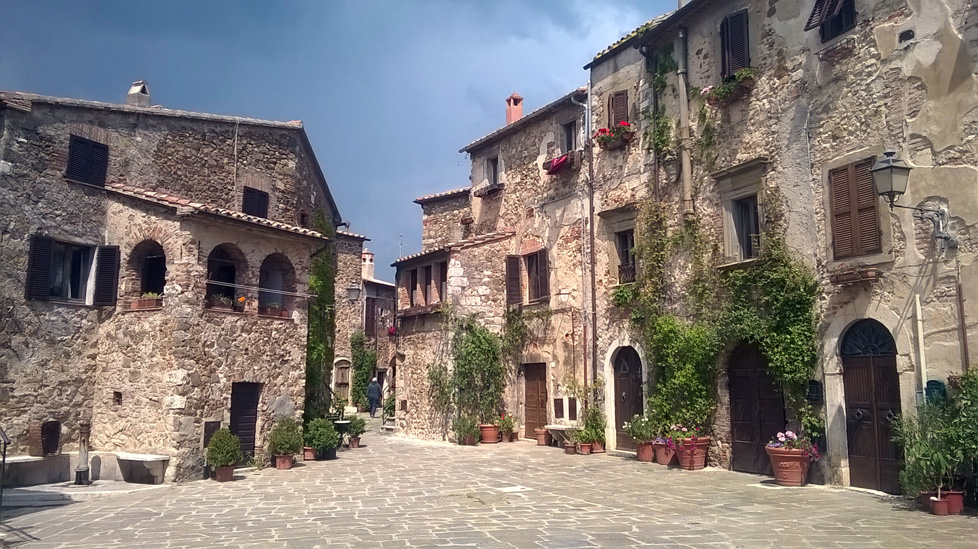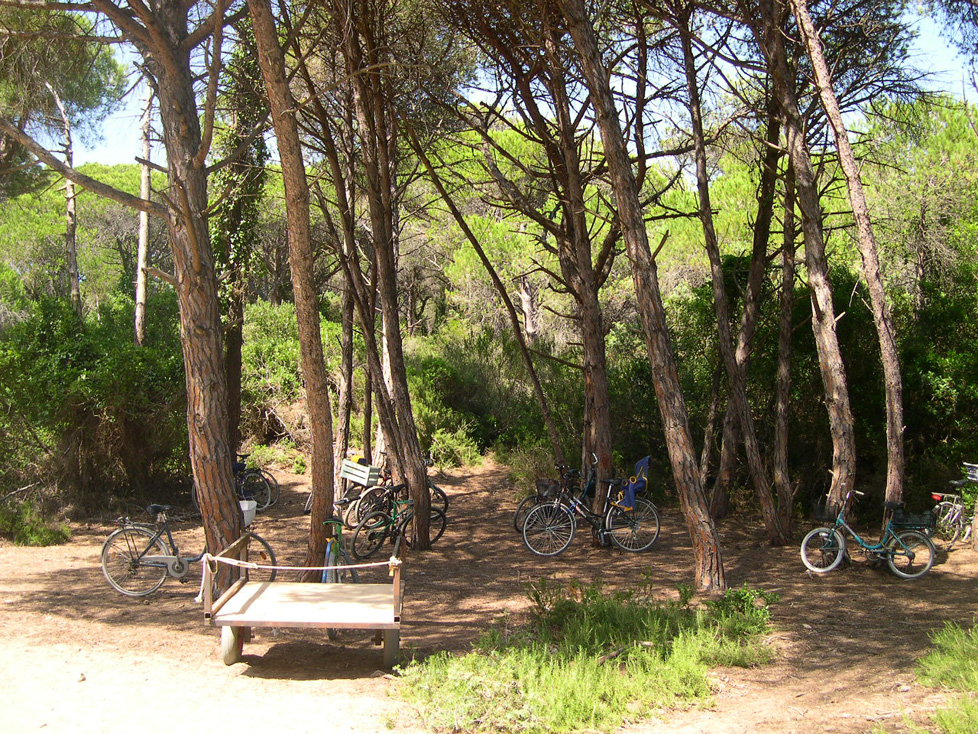Viaggiare slow: nel dopo-pandemia il turismo non sarà più lo stesso
Quando torneremo a viaggiare sarà per piccole distanze, per un turismo slow e di prossimità. Magari in auto elettrica, in bicicletta. Oppure a piedi.

Quando torneremo a viaggiare sarà per piccole distanze, per un turismo slow e di prossimità. Magari in auto elettrica, in bicicletta. Oppure a piedi.

(English translation below)
Come cambierà il nostro modo di viaggiare in un prossimo futuro? Un ritorno al passato è impensabile. Il turismo non sarà più lo stesso. Siamo ad un punto di rottura. L’esperienza della pandemia ci costringe a rivedere il rapporto tra turismo e ambiente. Ci ha resi tutti più consapevoli delle nostre fragilità, non solo quelle di noi esseri umani ma anche quelle del pianeta stesso. Abbiamo compreso di essere vulnerabili, e con noi è vulnerabile l’ambiente in cui viviamo.
Mentre scrivo sta finendo l’anno. Sul display vedo scorrere gli ultimi minuti di un anno infausto, buio come la notte più nera, luttuoso come può esserlo solo una pandemia. E aspettando che quel 2020 caschi giù come una mela marcia, vengono alla mente tutte le domande più banali per una persona come me che sul viaggiare ha costruito la sua professione e acceso le sue passioni: quando torneremo a viaggiare in aereo? Faremo ancora viaggi di gruppo? In che modo viaggeremo in treno? Come riempiremo gli spazi intorno a noi? Le crociere torneranno ad essere come prima? Ma soprattutto, la domanda delle domande è quali destinazioni sceglieremo?
Si perché già quest’estate si è potuto osservare un cambio nelle destinazioni turistiche. Quando a luglio ed agosto è sembrato che tutto potesse ripartire, seppure con la massima cautela, chi ha osato mettersi in viaggio ha scelto destinazioni più tranquille, piccoli borghi, parchi naturali, aree protette. Si è optato per destinazioni a bassa densità di popolazione, tralasciando le grandi metropoli. Ed è stato quasi naturale scegliere luoghi all’aperto, aree archeologiche, boschi, ambienti lacustri o fluviali.

Questo ci induce a pensare che in un prossimo futuro la natura sarà la protagonista dei nostri viaggi. Aria pulita, spazi ampi, distanziamento sicuro, acqua pura, senso di libertà saranno gli aspetti a cui daremo più importanza nella scelta del viaggio. Ma questa maggiore richiesta di natura dovrà conciliarsi con un turismo più sostenibile, più equilibrato e più in armonia con animali ed ambiente. Perché, mentre stiamo vivendo l’emergenza sanitaria, dobbiamo fronteggiare anche un nuovo modo di relazionarci con il pianeta, che sia meno antropocenico e sappia costruire una visione per il futuro.
Non possiamo pensare di invadere foreste, boschi, riserve naturali ed ambienti protetti solo perché lì ci sentiamo più sicuri, al riparo da contagi e infezioni. E’ necessario più che mai creare una sensibilità ecologica collettiva e sviluppare un approccio empatico verso il mondo animale. Solo in questo modo sarà possibile trovare nuovi equilibri tra il nostro bisogno di viaggiare e il rispetto verso l’ecosistema che ci circonda.

Intanto, nell’attesa di questo 2021 sul quale stiamo riponendo tutte le nostre speranze, cominciamo a pensare in positivo. Cominciamo a credere che viaggiare sarà di nuovo possibile presto. E cominciamo a inventare un nuovo modo di viaggiare, ad esempio noleggiando un’auto elettrica.
Ma non sarà facile recuperare tutte le nostre libertà. Quando torneremo a muoverci, sarà per piccole distanze, dentro le nostre regioni, oppure tra regioni confinanti. E allora quando torneremo a fare piccoli viaggi, l’auto elettrica potrà essere la scelta più equilibrata, perché ci offre il vantaggio di circolare nelle zone limitate al traffico, non è soggetta ad ecopass e gode di molte agevolazioni nei parcheggi a pagamento. Perché non immaginare un week end fuori porta senza pensieri, con un’auto elettrica che non inquina? Ad esempio per andare a scoprire uno dei tanti borghi più belli d’Italia. Sulla home del sito compare la cartina del nostro Paese: basta cliccare sulla propria regione per scoprire piccoli borghi alcuni dei quali neanche abbiamo sentito mai nominare.
E se cercate qualche idea per itinerari sostenibili e vicini, c’è un’Associazione di Promozione sociale che fa al caso vostro: si chiama Viaggiare Slow ed offre idee e spunti per scoprire i territori a piedi o in bicicletta.
E allora voltiamo serenamente le spalle a questo orribile 2020, e incamminiamoci verso un 2021 che, ci auguriamo, sia costellato di tanti piccoli viaggi, lenti, cadenzati, rilassati, quasi indolenti, per lasciare che sia il mondo a venirci incontro. Perché il nostro prossimo futuro vedrà un turismo slow, di prossimità, equilibrato e rispettoso. E’ il mio augurio a tutti i lettori di Rewriters per il nuovo anno, perchè possano riscrivere il loro modo di viaggiare.
ENGLISH VERSION
When we’ll return to travel it will be for short distances, for slow and proximity tourism. Maybe by electric car, by bicycle. Or on foot.
How will the way we travel change in the near future? A return to the past is unthinkable. Tourism will never be the same again. We are at a breaking point. The experience of the pandemic forces us to review the relationship between tourism and the environment. The pandemic has given us awareness of our frailties, the frailties of human beings but also the frailties of the planet itself. We understand that we are vulnerable, and the environment in which we live is also vulnerable.
As I write this, the year is ending. On the display, I see the last minutes of an ominous year, dark as the blackest night, mournful as only a pandemic can be. And waiting for that 2020 to fall down like a rotten apple, all the most simple questions come to mind for a person like me who has built his profession and passions about travelling: when will we return to travel by plane? Will we still do group travel? How will we travel by train? How will we fill the spaces around us? Will the cruises be as before? But above all, the question of questions is which destinations will we choose?
Yes, because this summer we have already seen a change in tourist destinations.
When, in July and August, it seemed that everything could start again, albeit with the utmost caution, those who dared to travel chose quieter destinations, small villages, natural parks, protected areas. We opted for destinations with a low population density, leaving out the big cities. And it was almost natural to choose outdoor places, archaeological areas, woods, lake or river environments.
This leads us to think that in the near future nature will be the protagonist of our travels. Clean air, wide spaces, social distancing, pure water, a sense of freedom will be the aspects to which we will give more importance in the choice of the trip. But this greater demand for nature will have to be reconciled with more sustainable tourism, more balanced and more in harmony with animals and the environment. Because, while we are experiencing a health emergency, we must also face a new way of relating to the planet, which could be less anthropocenic and could build a vision for the future.
We cannot think of invading forests, woods, nature reserves and protected environments just because we feel safer there, safe from contagions and infections.
It is more than ever necessary to create a collective ecological sensitivity and develop an empathic approach to the animal world. Only in this way, it’ll be possible to find new balances between our need to travel and respect for the ecosystem that surrounds us.
Meanwhile, waiting for this 2021 on which we are placing all our hopes, we begin to think positively. Let’s begin to believe that travel will be possible again soon. And let’s begin to invent a new way to travel, for example by renting an electric car.
But it will not be easy to recover all our freedoms. When we’ll return to move, it will be for small distances, within our regions, or between neighbouring regions. And then when we go back to making short trips, the electric car may be the more balanced choice, because it offers us the advantage of circulating in restricted traffic areas, it is not subject to an ecopass and enjoys many discounts in paid parking. Why not imagine an out-of-town weekend, with an electric car that doesn’t pollute? For example, to go and discover one of the many most beautiful villages in Italy. The home of the site shows the map of our country: just click on your region to discover small villages some of which we have never even heard of.
And if you are looking for some ideas for sustainable and close itineraries, there is a Social Promotion Association that is right for you: it is called Viaggiare Slow and offers ideas for discovering the territories on foot or by bicycle.
So let’s calmly turn our backs on this horrible 2020, and let’s move towards 2021 that, we hope, will be dotted with many small, slow, rhythmic, relaxed, almost indolent journeys so that the world will come to meet us. Because our near future will see slow, proximity, balanced and respectful tourism. It is my wish to all the readers of Rewriters for the new year so that they can rewrite their way of travelling.
